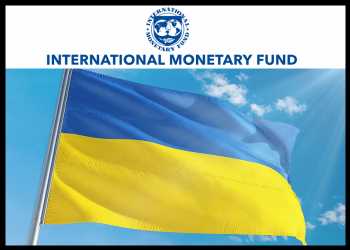IMF Agrees To Support Ukraine With $15.6 Bln Funding

The International Monetary Fund has reached an agreement with Ukraine to provide a loan worth $15.6 billion to support the war-torn country in its economic recovery, post-war reconstruction and path to EU accession.
The staff-level agreement was reached after a week-long meeting between Ukrainian officials and an IMF team led by IMF Mission Chief for Ukraine Gavin Gray in Warsaw.
The Ukrainian team was represented by NBU Governor Andriy Pyshnyy, Finance Minister Sergii Marchenko, and other senior public officials.
The 4-year economic program, under the Extended Fund Facility (EFF) Arrangement, is subject to approval by the IMF Executive Board.
“The staff-level agreement reflects the IMF’s continued commitment to support Ukraine and is expected to help mobilize large-scale concessional financing from Ukraine’s international donors and partners over the duration of the program,” Gray said in a statement.
He noted that in addition to the horrific humanitarian toll, Russia’s invasion of Ukraine continues to have a devastating impact on its economy. Activity contracted by 30 percent in 2022, a large share of the capital stock has been destroyed, and poverty levels have climbed. Acute macroeconomic challenges persist due to the scale of the shock and the expansion of the fiscal deficit. The authorities have nevertheless managed to maintain macroeconomic and financial stability, thanks to substantial external support and skillful policymaking. The authorities’ commitment to good economic management was also evidenced by the strong performance under the Program Monitoring with Board Involvement (PMB), he added.
IMF said it is expecting a gradual economic recovery over the coming quarters, and that amid “exceptionally high uncertainty”, its current GDP growth outlook for 2023 ranges from -3 to +1 percent.
In the first phase, the Ukrainian authorities have committed to continuing reforms to strengthen governance and anti-corruption frameworks, including through legislative changes.
During the second phase, Ukraine would be expected to revert to pre-war policy frameworks, including a flexible exchange rate and inflation targeting regime. In addition, fiscal policies would focus on critical structural reforms to anchor medium-term revenues through the implementation of a national revenue strategy, together with strengthening public finance management and introducing public investment management reforms to support post-war reconstruction.
Source: Read Full Article
